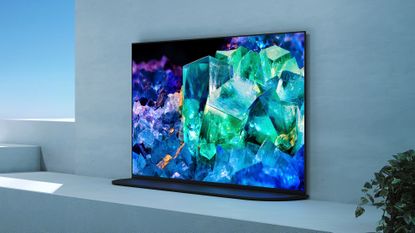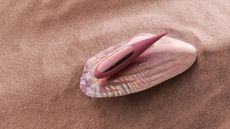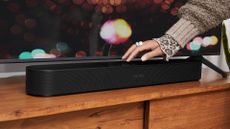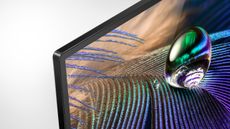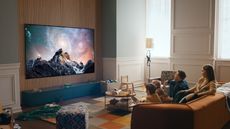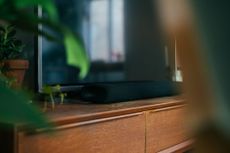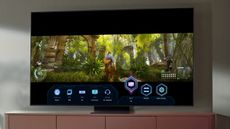We are very excited about QD-OLED, which promises to deliver even better picture quality than the best OLED TVs. But we've been dreading the inevitably high prices. As we reported last week, low production yields mean that QD-OLEDs are really difficult to make in quantity – and that means higher prices as a result. As we put it in our report: "brace yourself for the 55-inch Sony A95K to start at a higher price than the £2,699/$2,799 that the Sony A90J launched at in 2021."
The difference between the Sony A95K and the current A90J might not be as scary as we feared, though. According to a rather inspired bit of digging by Digital Trends, the 55-inch version may cost $3,000. That's more than the A90, for sure. But it's not "HOW much?" more.
What do points mean? Prices!
The price comes from Sony's online Sony Rewards programme, which usually – but not always – allocates points based on the RRP of its products. So a product costing $1,000 would give you 1,000 points; one costing $2,000 would give you 2,000, and so on.
It just so happens that the Sony A95K is in that list, with a points value of 3,000 for the 55-inch and 4,000 for the 65-inch. You don't need to be brilliant at maths to work out that those figures mean an price of $3K and $4K respectively.
That's still a lot of money for a TV, of course, but it's a lot of TV for the money. However, if you're thinking of hanging on for the inevitable price drop, the production yield problems are still relevant: Samsung isn't investing heavily in QD-OLED tech yet for that very reason, so supplies of the panels and therefore the TVs are going to be limited for some time.
That means the QD-OLED displays are more for early adopters, and that's fine: the best TVs in 2022 include some absolutely brilliant sets with stunning picture quality that cost considerably less. QD-OLED may well be the future of TV, but we're willing to wait a while for the future to become a bit more affordable.
